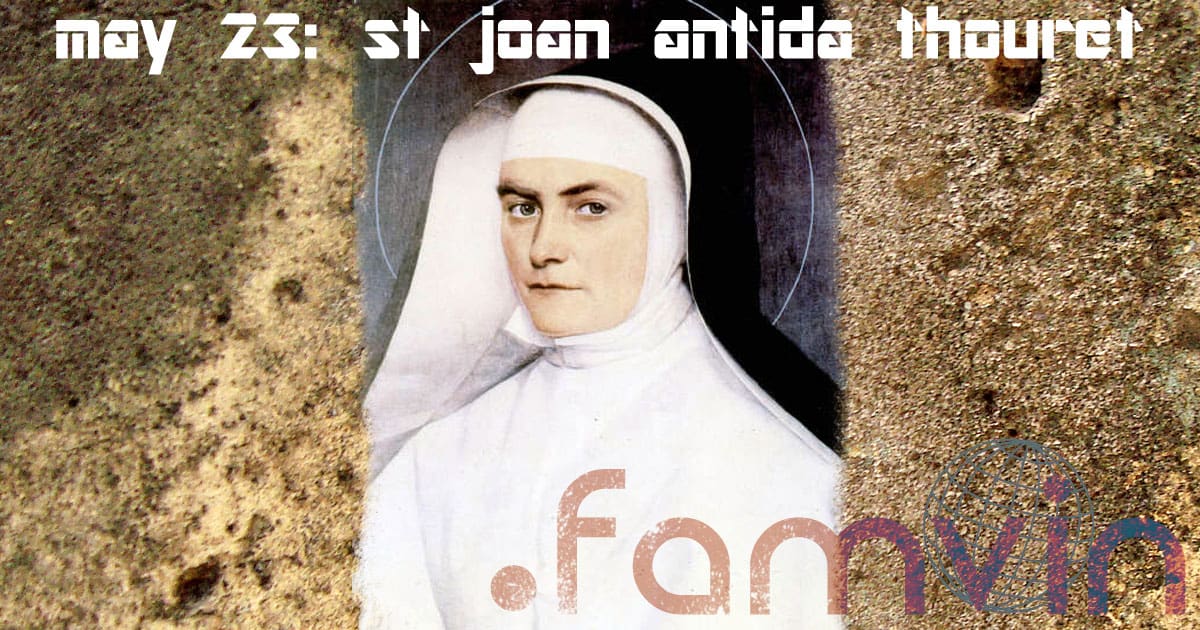St. Joan Antida Thouret in Her Own Words
The story of St. Joan Antida Thouret (also known as Jeanne Antide Thouret (in French), Giovanna Antida Thouret (in Italian))
- Born on November 27, 1765 in France.
- Fifth child of a family of eight.
- Mother died when she was 15.
- At the age of 22, she saw a vision of hands reaching out to her through a cloister grille. She decided to join a community that combined prayer, community living, and ministry to the poor: the Daughters of Charity.
- During the French Revolution, all religious congregations were banned and Jeanne Antide was forced to leave the Daughters of Charity. All of the Sisters were disbanded and sent back to their hometowns.
- She returned to her home and continued to care for the sick, the wounded, and the poor-– all of which grew numerous during the chaos of the French Revolution. She also taught the children, helped the priests who were forced to hide, and gathered Christians in prayer.
- She then fled France and escaped to Switzerland to join a different religious itinerant community where she cared for the sick. With them she traveled across Switzerland and Germany. When she decided to return to France she did so on foot, alone, without a passport and through unknown places at the risk of her own life.
- Representatives from her diocese of Besançon, also in exile, made a request of her to continue on to France and take in young girls whom she should train in the same way she was trained. She accepted this request and in 1799 she opened a school, a dispensary, and a soup kitchen for the poor in Besancon. She had founded a new congregation.
- Jeanne Antide died in Naples in 1826.
- In 1934, Pope Pius XI declared her a Saint.
United States and Beyond
In 1932 the Sisters of Charity of St. Joan Antida came to the United States where they ministered to the Italian immigrants in Milwaukee, Wisconsin, at the height of the depression. According to their website they work in 26 countries following their mandate to go wherever they are needed. They take Four Vows: in addition to the usual vows of Poverty, Chastity, and Obedience, the fourth vow, Service to the Poor, is what sets them apart from other communities. From their website:
“This [fourth] vow calls us to a “mutuality” with the poor. It is NOT an attitude of our being superior to the poor, rather it calls us to learn from each other and to live and work together to create a better society.”
For further reading about St. Joan Antida, visit this article in Vincentiana.







0 Comments